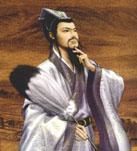'Critical literacy' approaches in Australian schools have become a favourite whipping dog of the Murdoch press, or at least of The Australian's ex-education editor. Conservative pundits and letter-writers have been trumpeting the new Queensland education minister's vow to banish postmodernist 'mumbo jumbo' from his state's English curriculum, which has given a bipartisan streak to federal government Fightback against perceived far-left colonisation of our education bureaucracies. Of course, labelling something one doesn't understand as mumbo jumbo doesn't rob it of meaning; programming code seems gibberish to people who aren't computer technicians, but it still does useful things for us. It's unfortunate that postmodernism has developed within its ivory towers into the very sort of jargon-based, self-referencing system that it accuses mainstream discourses of being, alienating it from the general public.
Postmodernism does in fact have much to offer, starting from its basic insight that there is no such thing as a 'neutral' text. There's nothing at odds with the western tradition of critical enquiry in giving kids the intellectual tools to dissect the right's claim - adapting a well-known aphorism from academic history - to tell it 'as it actually is'. That said, one must question whether teaching third-graders to uncover the Anglo-centric agenda of the Three Little Pigs (think capitalism, European housing and Aboriginal nature personified as the Big Bad Wolf) is a substitute for building blocks like spelling, grammar and expression. The 'literacy' must come before the 'critical', otherwise we get the sort of dumbing-down that right wing stormtroopers from Keith Windschuttle to Victor Davis Hanson validly warn about. If they teach deconstructionism properly at the VCE/HSC level, Foucaultian types needn't worry about kids being pumped with establishment ideology for the preceding 10 years.
On the other side of the world, progressives and scientists alike are jumping at shades of the infamous 1925 Scopes 'monkey trial', with a push by school boards and state legislatures from Montana to New York to squeeze 'intelligent design' into high school biology courses alongside evolutionary theory. Doomsday prophecies of the US losing its technological edge in a Darwinian (*budabum*) world are being bandied around, juxtaposing America's regression into theism with, for instance, South Korea's recent success in producing the first cloned puppy. (Incidentally I haven't yet seen any culinary jibes about this, though I'm sure they're out there - recall the dog meat row surrounding the 2002 FIFA world cup.) While things are hardly at the book burning stage yet, there are issues with repackaging creationism as science and marketing it as a rational alternative to evolution. Using postmodernist analysis, one might say that theism has appropriated the language of the dominant discourse ('science') to acquire positions of power from which to undermine it, a suspicion buttressed by the fact that support for ID is synonymous with profession of Christian faith. Intelligent design, its critics point out, posits an agency beyond the scope of observation and experimentation, i.e. of the scientific method; teaching it as biological theory is the equivalent of teaching 'flat-earthism' in geography classes. One thing's for sure, we have here the makings of another long and nasty federal court battle.


1 comment:
agreed. As noted in the post, postmodernism has become something of a hegemonic paradigm itself within the corridors of academia, though some would say its time is passing - which is why it's allegedly colonising state school bureaucracies. Deconstructionist approaches have their drawbacks, especially in the pre-tertiary context, but they inevitably draw hostility because by their very nature they appear corrosive of whatever field they're being applied to, and so provoke defensive reactions from the establishment. They're easily portrayed as an intellectual virus destroying anything it touches, leading people to shut them out rather than grappling with them and coming away richer for the experience.
Here's an interesting critique and defence of postmodernism's implications for a particular discipline (history).
Post a Comment